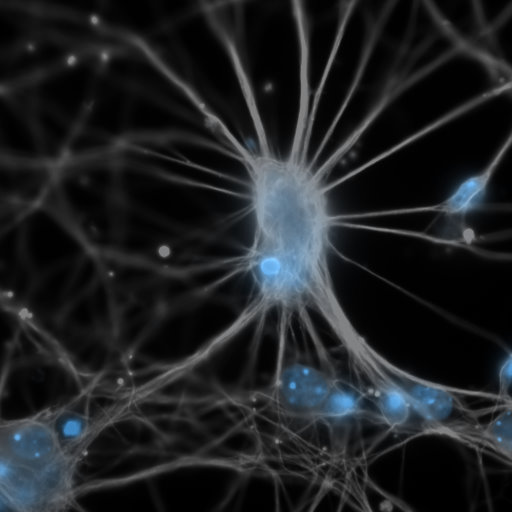“Science is slow,” says Duke undergraduate Jaan Nandwani. That’s one of the takeaways from her first experience with scientific research. For Nandwani, being part of a supportive lab makes it all worthwhile. But we’re getting ahead of ourselves. This statement needs context.
Nandwani, a prehealth sophomore, currently conducts research in the lab of neurologist Nicole Calakos, MD, PhD. The Calakos lab is focused on synaptic plasticity: changes that occur at the communication junctions between nerve cells in the brain. The lab researches how the brain responds to changes in experience. They also investigate the mechanistic mishaps that can occur with certain neurological conditions.

As a continuation of an 8-week summer research program she participated in earlier this year, Nandwani has been studying dystonia, a brain disorder that causes uncontrollable muscle contractions. She’s using western blot analysis to determine if the activity of a protein called eIF2α is dysregulated in the brain tissue of mice with dystonia-like symptoms, compared with their normal littermates. It is currently unclear if and when targeting the eIF2 signaling pathway can improve dystonia, as well as where in the brain “selective vulnerability” to the signaling occurs. If Nandwani is able to identify a specific region or time point “in which the pathway’s dysregulation is most predominant,” more effective drug therapy and pharmacological interventions can be used to treat the disorder.

Outside of her particular project, Nandwani attends lab meetings, learning from and contributing to the greater Calakos lab community. Scientific work is highly collaborative and Nandwani’s experience is testament to that. Along with providing feedback to her own presentations in meetings and answering any questions she may have, Nandwani’s fellow labmates are always eager to discuss their projects with her, give her advice on her own work, and have helped her “develop a passion for what [she is] studying.” They’ve also helped her learn new and improved ways to conduct the western blot process that is so integral to her work. Though she admits it is tedious, Nandwani said that she enjoys being able to implement better techniques each time she conducts the procedure. She also says she is thankful to be surrounded by such a supportive lab environment.
It might seem hard to believe granted the scope and potential impacts of her work, but this is Nandwani’s first experience with research in a lab. She knew when coming to Duke that she wanted to get involved with research, but she says that her experience has surpassed any expectations she had – by far. Though she doesn’t necessarily foresee continuation of research in the form of a career and is more fascinated by clinical applications of scientific research, the experience cannot be replicated within a classroom setting. Beyond the technical skills that Nandwani has developed, she says that the important and valuable mentoring relationships she has gained simply couldn’t be obtained otherwise.

Nandwani hopes to continue in the Calakos lab for the remainder of her time at Duke – that’s two and a half more years. Though she will work on different projects, the quest to pose and answer scientific questions is endless – and as Nandwani said, science is slow. The scientific process of research takes dedication, curiosity, collaboration, failure, and a continued urge to grow. The scientific process of research takes time, and lots of it. Of course the results are “super exciting,” Nandwani says, but it is the experience of being part of such an amazing group of scholars and scientists that she values the most.

